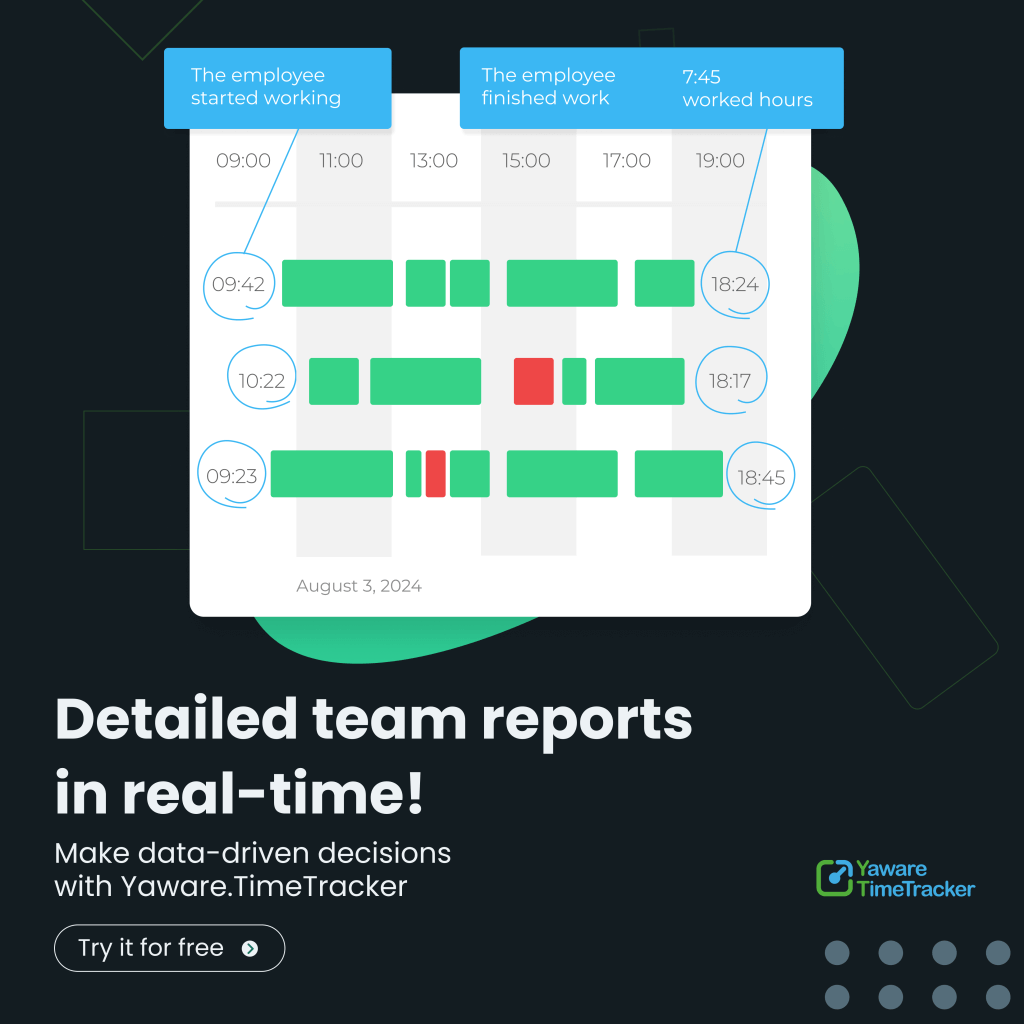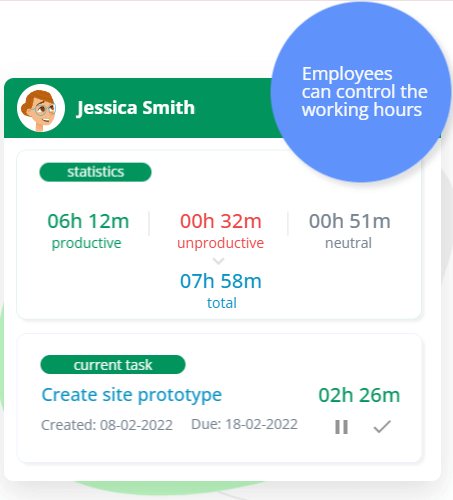Why Does Employee Privacy Matter in Monitoring?
Tracking work activity while protecting personal boundaries is essential for trust and motivation. When team members feel observed rather than empowered, engagement drops. In a 2025 Gallup report, only 23% of global employees reported being engaged. Surveillance was a key deterrent.
Respectful monitoring creates sustainable team culture. In remote and hybrid formats, where work and personal life often intersect, ethical time tracking builds mutual accountability and psychological safety.
What Does ‘Non-Invasive' Monitoring Actually Look Like?
“Non-invasive monitoring” means tracking workflows without accessing personal content or spying on screens. It requires clear context for all monitoring activities and avoids intrusive control.

A strong system offers aggregated activity data, opt-in transparency policies, visibility into work tools rather than content, and reports designed for improvement. Some systems also categorize time based on productivity zones.
These tools give people structure and autonomy.
How Monitoring Tools Can Respect Employees and Still Be Effective
Respect and performance grow together. Tools like Yaware.TimeTracker enable flexible teams and independent workflows without compromising either.
A respectful approach includes:
- Letting employees see their own stats first
- Highlighting peak focus hours over idle time
- Grouping data to reveal patterns instead of targeting individuals
- Replacing real-time alerts with weekly summaries
- Supporting self-reflection through personal dashboards
A team of developers in Kyiv used time tracking to spot deep-focus blocks. They adjusted sprint schedules around natural energy peaks. As a result, performance and retention improved.
When people see their own patterns, they improve naturally.
Legal and Ethical Foundations of Employee Monitoring
Monitoring is permitted by law, but ethics demands more. EU GDPR and various U.S. state laws require consent, clarity of purpose, and data minimization. Employees must be notified before monitoring begins.
Ethical systems also enforce encryption, retention limits, and access controls. Data must never be used to penalize or manipulate.
According to Deloitte, organizations that embed privacy-by-design principles report 20% better compliance and stronger employee trust.
How to Track Work Time Without Spying: Key Principles
Ethical tracking follows five key practices:
- Clarity – employees understand what is tracked and why
- Visibility – individuals can review their own data
- Control – employees have influence over data use
- Balance – tracking supports both team and management needs
- Purpose – data provides insight, not evaluation
Monitoring becomes a shared tool, not a control mechanism. Productivity is tracked at the team level, not used to rank individuals.
When Monitoring Works: A Practical Case
One marketing agency used ethical time tracking to measure campaign planning hours. Data showed creative teams hit flow state later in the day. They moved meetings to mornings and kept afternoons free for deep work.

That shift was based on listening, not watching. The data reflected reality rather than amplifying pressure.
Why Ethical Monitoring Matters for Modern Teams
Employee trust is a strategic asset. Ethical tracking supports:
- Autonomous work styles
- Better time self-management
- Early detection of burnout risk
- Smarter delegation and workload balancing
- Ongoing team retrospectives driven by data
These outcomes reduce turnover, improve planning, and support sustainable distributed work. They depend on tools that treat people as collaborators.
Read how to motivate employees to use a productivity tracker
Explore how to handle employee resistance to time tracking
Learn how to improve working hours transparency
FAQ: Ethical Employee Monitoring
Is employee monitoring legal without notifying employees?
No. Most privacy laws, including GDPR, require informed consent. Monitoring without notification can result in legal penalties and employee backlash. Transparency is essential.
What is the difference between ethical and traditional employee monitoring?
Traditional monitoring often focuses on surveillance and control. Ethical monitoring emphasizes transparency, respect, and shared benefits – helping teams self-optimize.
How can I monitor work time without invading privacy?
Use tools that track productivity metrics like app usage and time blocks, but avoid keystroke logging or screen capture. Choose solutions that aggregate data, allow employee access, and include opt-in policies.
What tools support non-invasive time tracking?
Platforms like Yaware.TimeTracker focus on ethical employee monitoring without spying. They track working time and focus trends without collecting private data.
Can time tracking improve employee wellbeing?
Yes, when used respectfully. Non-invasive time tracking helps identify workload imbalances, supports time management skills, and prevents burnout by offering visibility without pressure.

